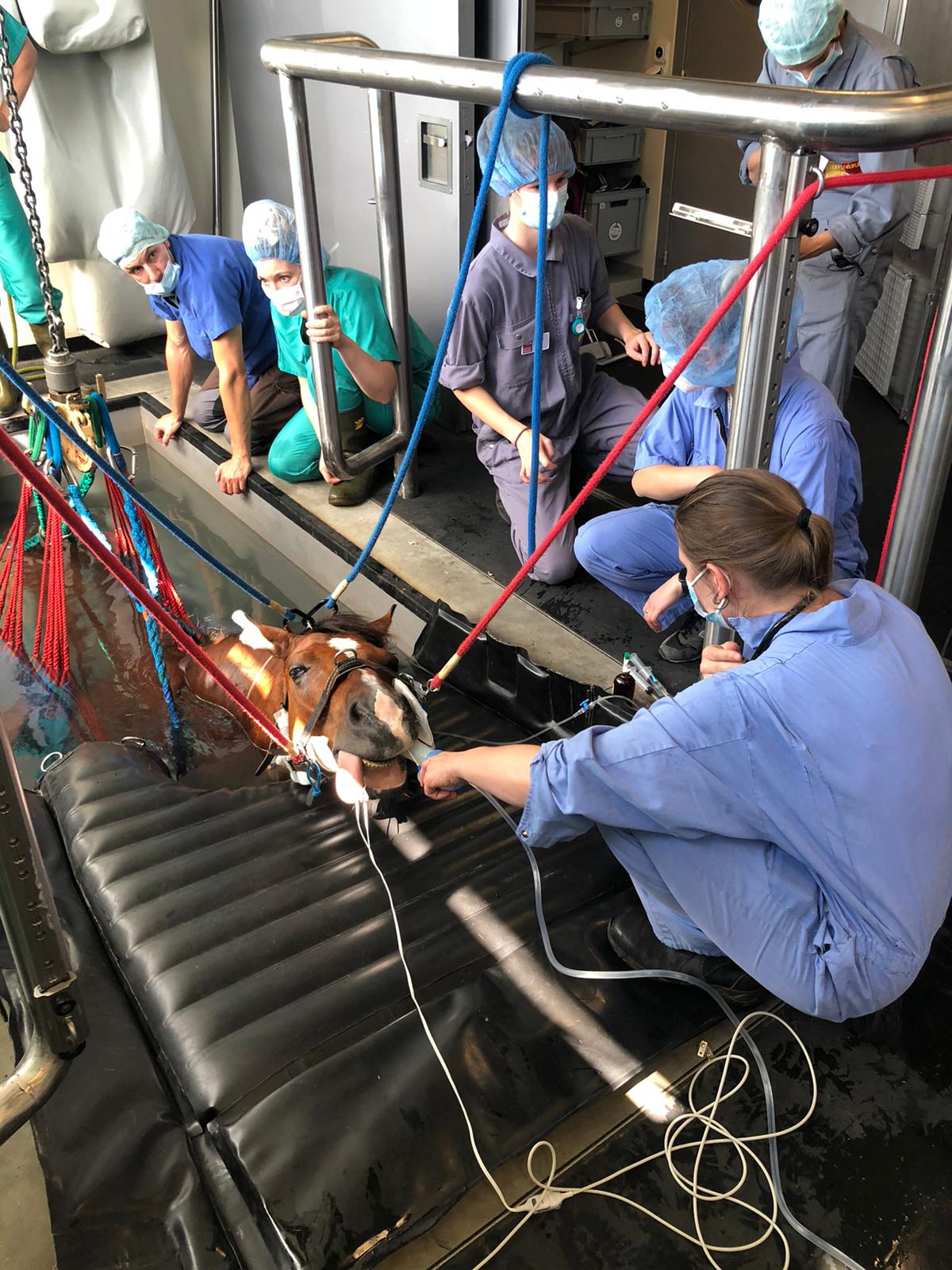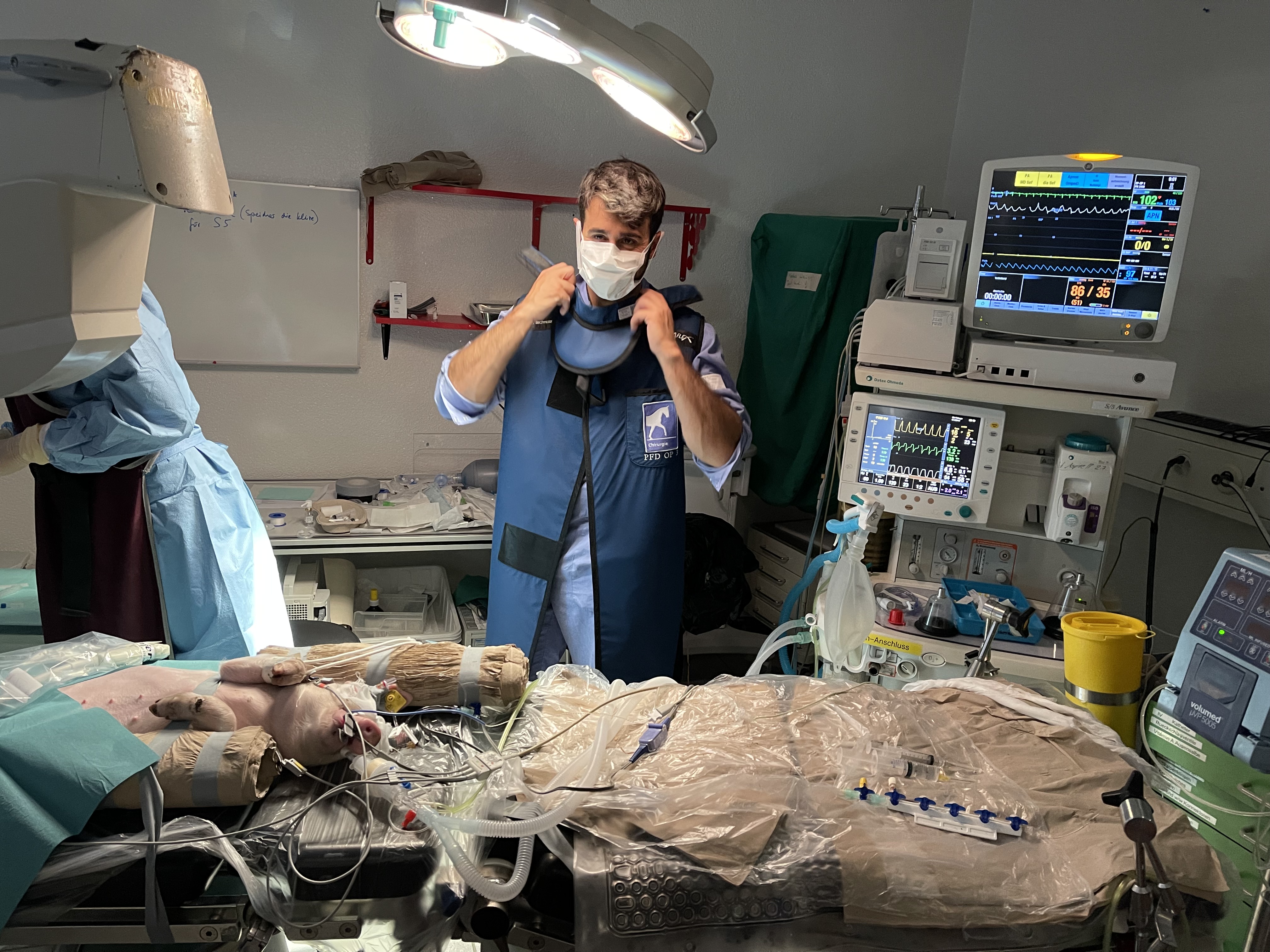
To become an EBVSTM European Specialist in Veterinary Anaesthesia and Analgesia, postgraduate veterinarians must enter a structured 3-5 year training programme called a ‘Residency’. Prior to this they must have either worked for at least one year as a rotating intern (which covers different specialties), or worked as a veterinarian in general practice for two years. Then they must complete a 3-5 year specialist postgraduate training programme in veterinary anaesthesia, analgesia and intensive care co-ordinated and supervised by a Diplomate of ECVAA. Please find a Diplomate here.
This training must be carried out in approved centres, where Residents can develop experience with all veterinary species, including small animals, large animals, non-conventional (exotic) species and laboratory animals, and with a wide variety of procedures including elective and emergency surgical and diagnostic procedures (CT, MRI, endoscopy, etc.). In addition, Residents should develop expertise in the management of critically ill patients undergoing surgical, diagnostic or other intensive care procedures.
During the training period, Residents must write two case reports written to a standard required for publication in a peer-reviewed, scientific journal and compile and maintain a case log of anaesthetised patients and those managed in ICU. Another component of the residency is a research project leading to publication of two peer-reviewed articles in internationally-recognised scientific journals. Upon completion of the residency these credentials are evaluated by the Credentials Committee of the College prior to proceeding to the examination. Finally, the Resident must pass the written and practical/oral examinations to be awarded the Diploma (Dip ECVAA) and the title of EBVSTM European Specialist in Veterinary Anaesthesia and Analgesia.
Detailed information on all the Residency requirements may be found in the College's Policies and Procedures.

